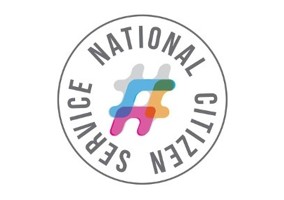The number of people taking part in National Citizen Service fell last year compared to the previous year, with the body responsible for the scheme saying a plan is now in place to reverse the trend.
NCS Trust, the royal charter body that oversees the government’s flagship youth volunteering programme, missed its participation targets last year and experienced its first overall decline in the number of young people taking part in the programme. This had a knock-on effect on its budget.
The participation target for 2020 has now been set at a lower than the number of young people who took part in 2017, though the Trust says it is confident of exceeding that target.
A spokesperson told Civil Society News: “Participation has grown rapidly from a pilot with 158 young people in 2009 to over 100,000 teenagers in 2018, making NCS the fastest-growing youth movement in the country. Understanding why our uptake slightly dipped to 92,000 last year is essential, along with steps the Trust has in place to reverse this.”
The minutes for the Trust's board meeting which took place on 11 December 2019 state: “It was noted that 2019 participation had been disappointing, and the first year that a decline has been observed.”
The minutes also state that the cause of the decline was “mainly driven by” under-delivery by The Challenge, the charity which until recently was the largest delivery partner for the NCS.
The spokesperson said that NCS Trust does not expect this situation to be repeated.
The Challenge is now in administration. A dispute between the charity and NCS Trust over an IT system meant The Challenge was not awarded any contracts to deliver the phase two round of the programme, which begins this year.
Before entering administration, The Challenge had begun a High Court challenge against NCS Trust.
Issues with The Challenge also meant that The Challenge’s autumn places were “decommissioned”.
The minutes state that the rest of the network experienced a “mixed performance” last year.
One region saw an increase in participation but elsewhere it was “flat” or a “slight decrease”.
Yesterday the government said it was investigating governance issues at NCS Trust after details of a proposed exit package for its former chief executive were found to be unacceptable.
Delays for 2020
The situation with The Challenge, and its departure as a delivery partner, was also blamed for delays in preparing for 2020, as staff were transferred to other providers in the network.
“The programme had not mobilised as quickly as planned in September, partly due to TUPE issues delaying timelines slightly,” the minutes say.
They add: “The vast majority of staff were now in place and planning would progress at full speed.”
The minutes also say that the new delivery model, which sees NCS Trust directly managing some areas, have “generated a great deal of positive energy”.
Lower targets
The minutes reveal how NCS Trust lowered its participation target for 2020 to 90,000-95,000 after discussion.
The Trust is now planning for “a decline of the autumn programme and modest growth of the summer programme”, having previously aimed for 93,000-95,000 participants.
The minutes say: “There were contractual levers to exceed these targets and the network was being set up to deliver higher than this, however protecting public funds and minimising unfilled places was a priority.”
The programme has repeatedly been criticised over missing its participation targets. In 2015 the then chancellor George Osborne said that by 2020, 300,000 young people would be taking part annually, although this target was subsequently lowered.
In 2017, the most recent year for which figures have been formally made available, 98,000 young people took part. This was just below its target, with 98 per cent of places filled.
The organisation’s annual report covering the period up to March 2019 is expected to be laid before Parliament later this month.
‘Failure to attract wealthier young people’
One of the main aims of the NCS programme is to facilitate mixing between young people from different backgrounds.
The minutes suggest that the programme has not proved as popular with people from more privileged backgrounds.
They say that overall “social mix figures were encouraging”, but add: “It was suggested that failure to attract wealthier young people also caused issues with social mix and this should be explicitly captured in the KPI metrics.
“It would be important in future to monitor more privileged demographics in the statistics.”
The NCS spokesperson said: “Our education engagement team is working with the private school sector and the Independent Schools Council to increase awareness and understanding of the programme.”
NCS statement in full
As a royal charter body, NCS Trust publishes the minutes of its board meeting on its website for full transparency and accountability. Our board has a responsibility to provide independent oversight, constructive challenge and support to the executive directors. The role of the executive is to remain open to this support. The selected points raised by Civil Society reflect these responsibilities.
The board discussions in December did highlight some things that had not progressed as well as they could. Analysis of the Trust's performance and recognition of the areas in which improvement or development is required is essential for the Trust's growth and continued success.
Minutes will also show things that had been better than expected - for example the recommissioning process. It was not a commentary on our final results and we can report real progress on our action plans. That is a hallmark of effective governance and an agile adaptive organisation.
We are happy to provide some more detail on these points.
Participation:
Participation has grown rapidly from a pilot with 158 young people in 2009 to over 100,000 teenagers in 2018, making NCS the fastest-growing youth movement in the country. Understanding why our uptake slightly dipped to 92,000 last year is essential, along with steps the Trust has in place to reverse this.
Underperformance by parts of our supply chain in some areas of the country played a part in the decline.The unique set of circumstances with former delivery partner The Challenge also led to a reduced number of NCS places. This was disappointing for everyone at the Trust but is not a situation that will be repeated.
Social Mix:
Overall our social mix figures are strong. We over-index with young people from socially deprived backgrounds, but recognise there is work to be done to attract wealthier teens to ensure the widest social mix. Our education engagement team is working with the private school sector and the Independent Schools Council to increase awareness and understanding of the programme.
Our marketing team is committed to better understand the motivations and barriers for different groups of young people to get involved with NCS. Research among young people has also helped inform the team developing initiatives which will widen the appeal of the programme to all young people, whatever their background.
Budget:
Our budget is set by government to ensure no young person misses out on the opportunity to take part in NCS. With slightly lower participation figures in 2019, our annual spend has been reduced.
The Challenge:
When The Challenge went into administration, the Trust developed options to support staff of The Challenge and those smaller organisations owed money by them. The Trust continues to work with The Challenge's administrators in order to conclude that process as swiftly as possible.
Related articles












